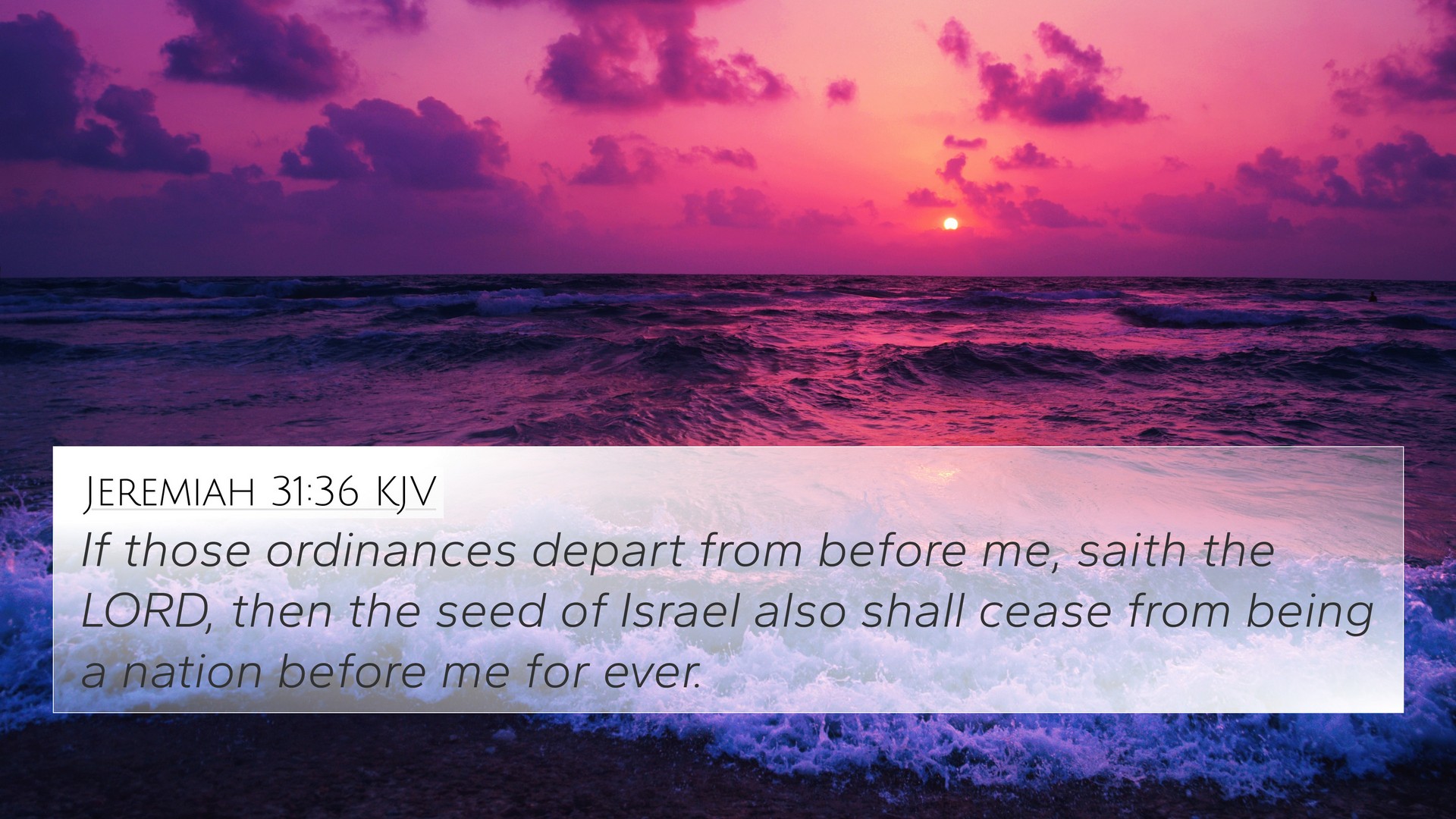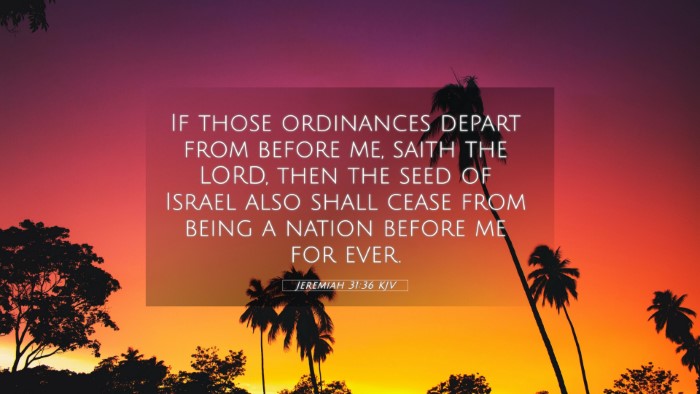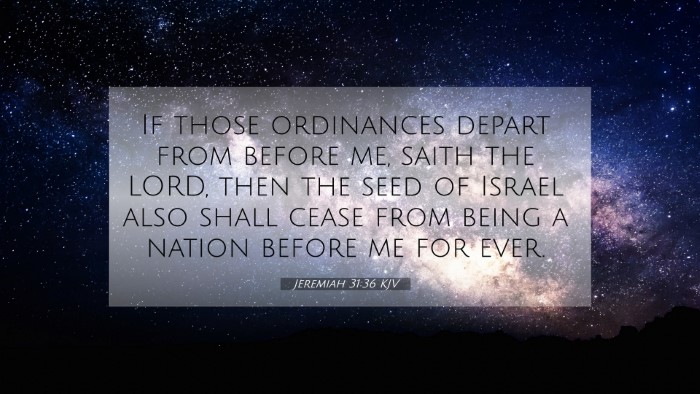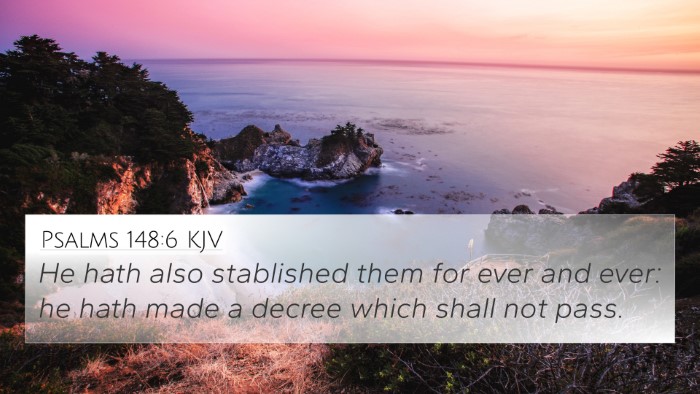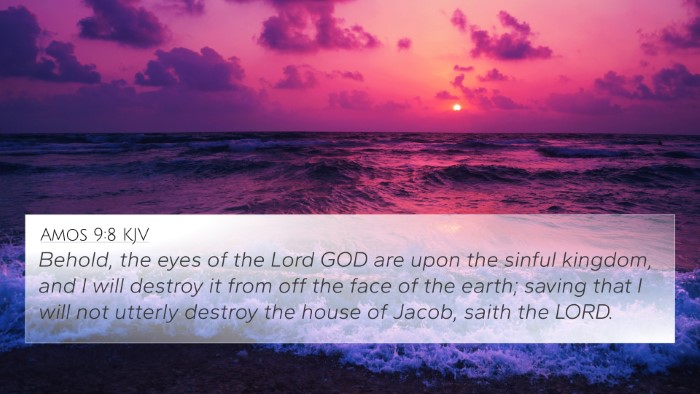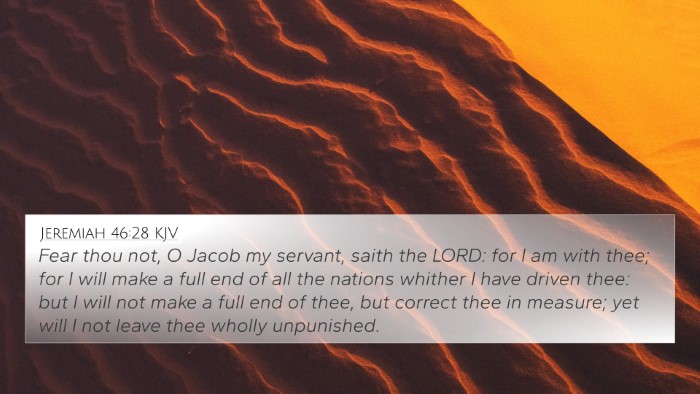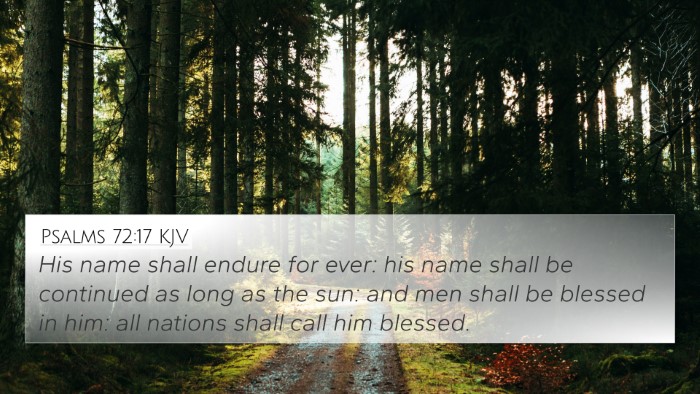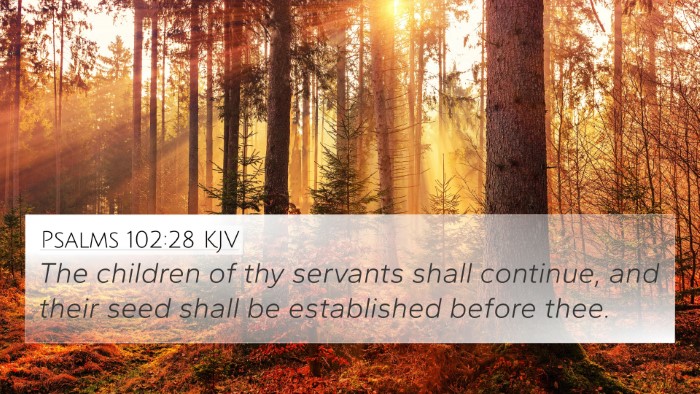Understanding Jeremiah 31:36
Jeremiah 31:36 states: "If those ordinances depart from before me, saith the Lord, then the seed of Israel also shall cease from being a nation before me for ever." This profound verse emphasizes the permanence of God's covenant with Israel and His commitment to His people.
Summary of Interpretations
Through the lenses of Matthew Henry, Albert Barnes, and Adam Clarke, several key themes emerge:
- Divine Promises: This verse asserts that God's ordinances are unchangeable and reflect His faithful promise to Israel.
- Israel's National Identity: The reference to "the seed of Israel" underscores the unending identity and existence of the nation in God's sight.
- Covenantal Assurance: The irrevocable nature of God's covenant assures that Israel will remain a nation, as long as His laws endure.
- Consequences of Disobedience: While God is steadfast, it suggests that Israel's fortunes are tied to their faithfulness to Him.
- Theological Implications: The verse has implications for understanding divine sovereignty and human agency within the context of covenant theology.
Bible Cross-References Related to Jeremiah 31:36
This verse connects deeply with several other passages, highlighting its themes of obedience, divine promises, and national identity:
- Genesis 17:7-8: God's everlasting covenant with Abraham regarding his descendants.
- Isaiah 54:10: Assurance that God's covenant of peace will not be removed.
- Romans 11:1-2: Paul discusses God's continued commitment to Israel, emphasizing His faithfulness.
- Ezekiel 37:25: The promise of Israel's restoration and their enduring presence as a nation.
- Hebrews 8:8-12: A reflection on the new covenant and its foundation in the promises made to Israel.
- Psalms 89:31-37: A reminder that God's covenant with David's line is perpetual.
- 2 Timothy 2:13: A promise of faithfulness, aligning with God's assurance to Israel.
Thematic Bible Verse Connections
This verse can be linked to broader themes in Scripture, which reflect a framework for understanding the relationship between God and His people:
- Covenantal Theology: God's promises are to be interpreted through the lens of His unchanging nature and fidelity.
- Hope and Restoration: Both Old and New Testament references reveal a consistent theme of hope for Israel’s future.
- Historical Context: Israel's identity is shaped by their covenant relationship with God throughout biblical history.
Comparative Bible Verse Analysis
Engaging in comparative Bible verse analysis allows for a richer understanding of the interconnections within Scripture:
- The relationship between the Old Testament promises and their New Testament fulfillment is crucial in studying God's faithfulness.
- Links between prophetic books and New Testament teachings contextualize God's enduring message of salvation.
- Inter-Biblical dialogue around themes of restoration and covenant sheds light on God's redemptive plan.
Conclusion
In conclusion, Jeremiah 31:36 serves as a powerful reminder of God's unbreakable promises to Israel, offering insights that resonate across both the Old and New Testaments. Through careful cross-referencing and thematic analysis, believers can enhance their understanding of God's nature and His unwavering commitment to His people.
Tools for Bible Cross-Referencing
For those interested in exploring the connections between Bible verses further, the following tools are recommended:
- Bible Concordance: A valuable resource for finding related passages and understanding their contexts.
- Bible Cross-Reference Guide: Useful for systematic study of interconnected verses.
- Cross-Reference Bible Study: A methodical approach to studying Scripture that highlights thematic links.
User Intent Keywords
For those seeking answers related to the connections of Jeremiah 31:36 with other Scriptures, here are some pertinent questions:
- What verses are related to Jeremiah 31:36?
- How do the themes of Jeremiah 31:36 connect with New Testament teachings?
- Find cross-references for understanding the significance of God's ordinances.
